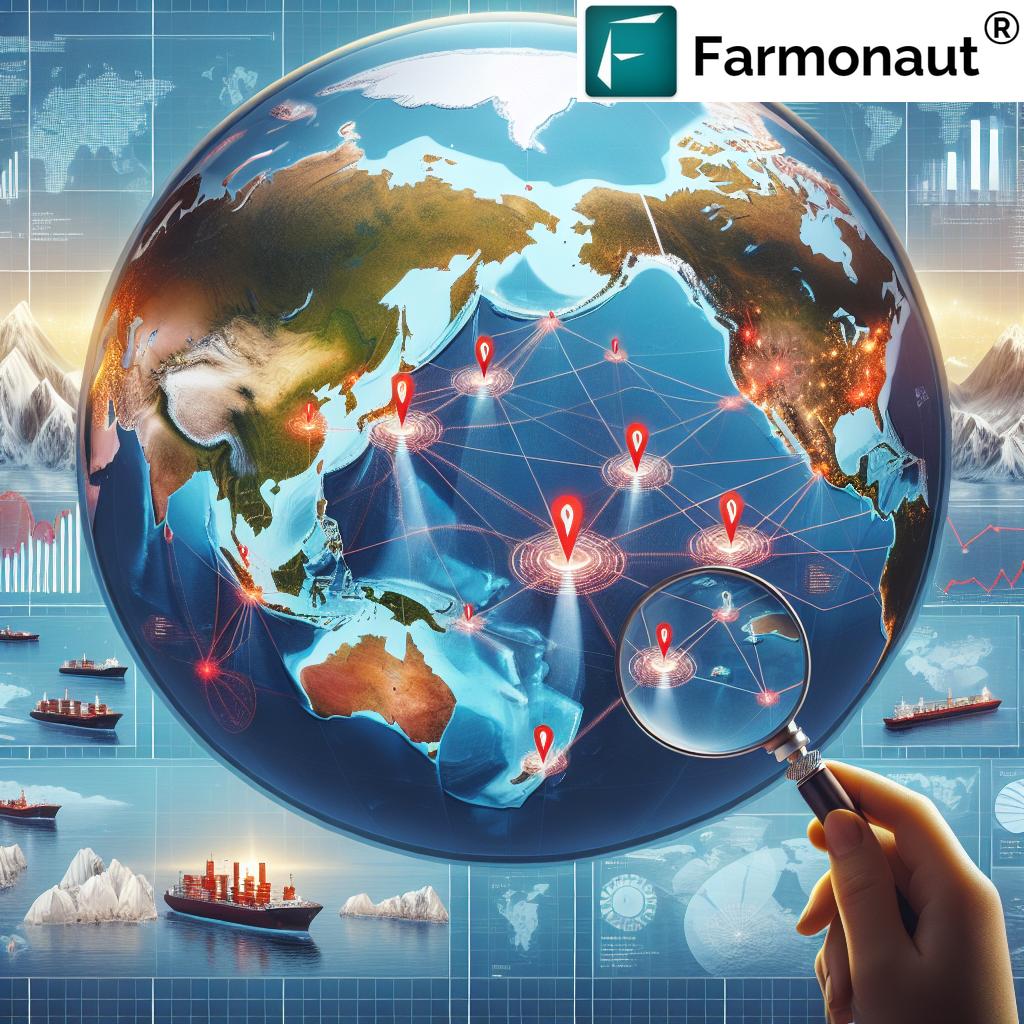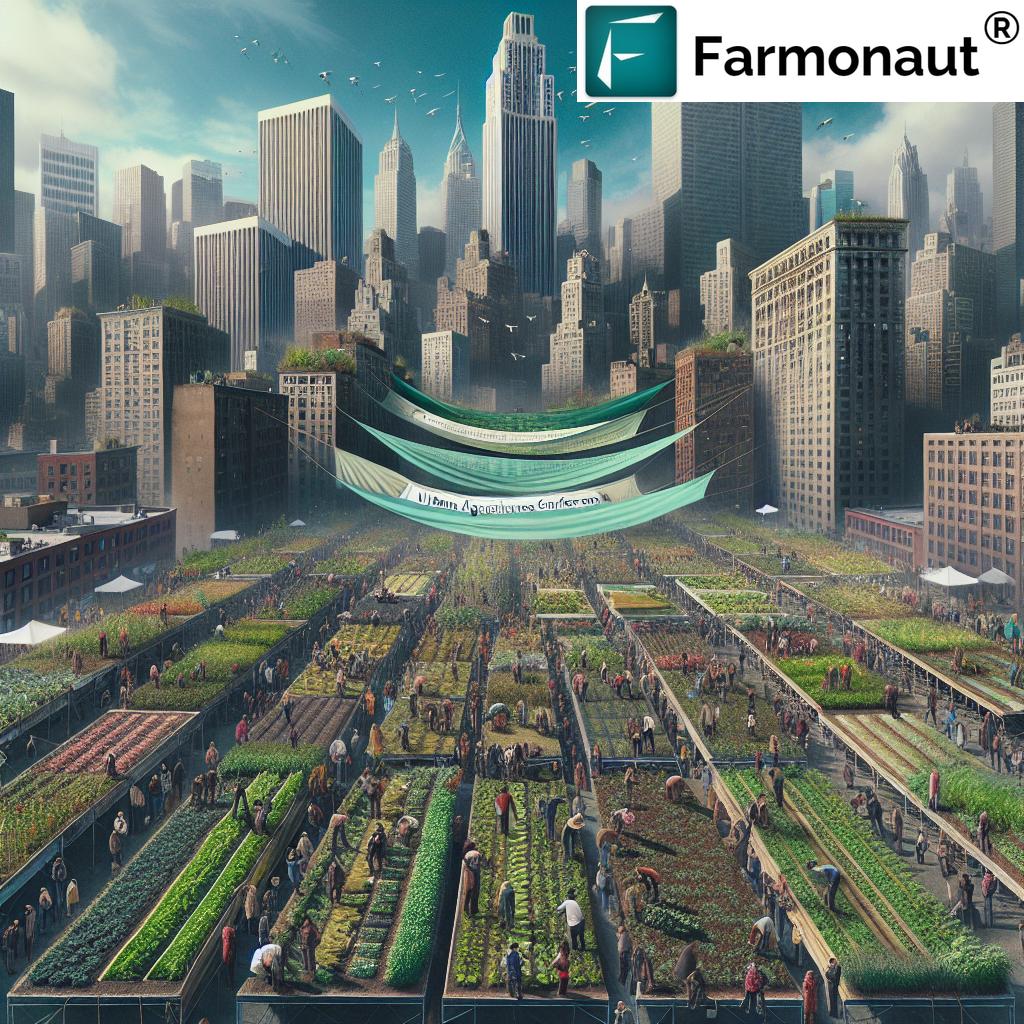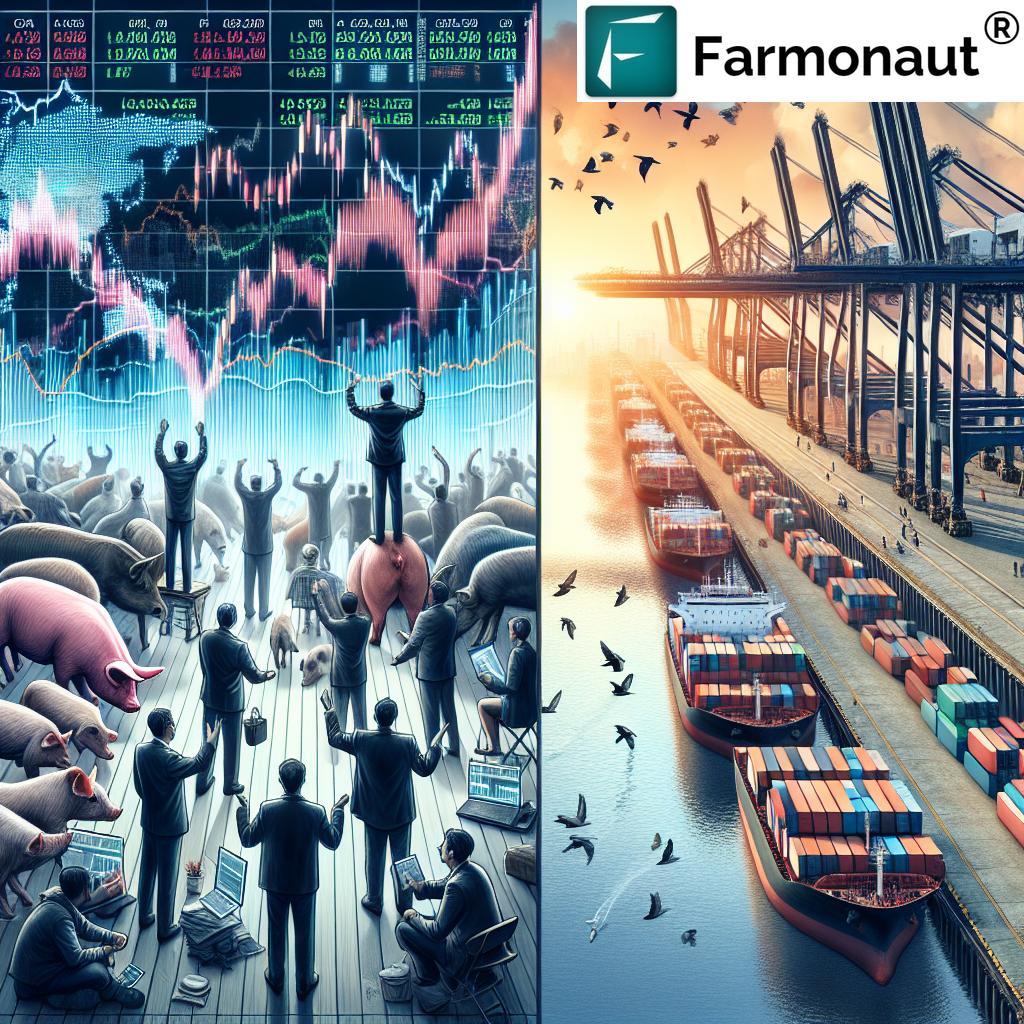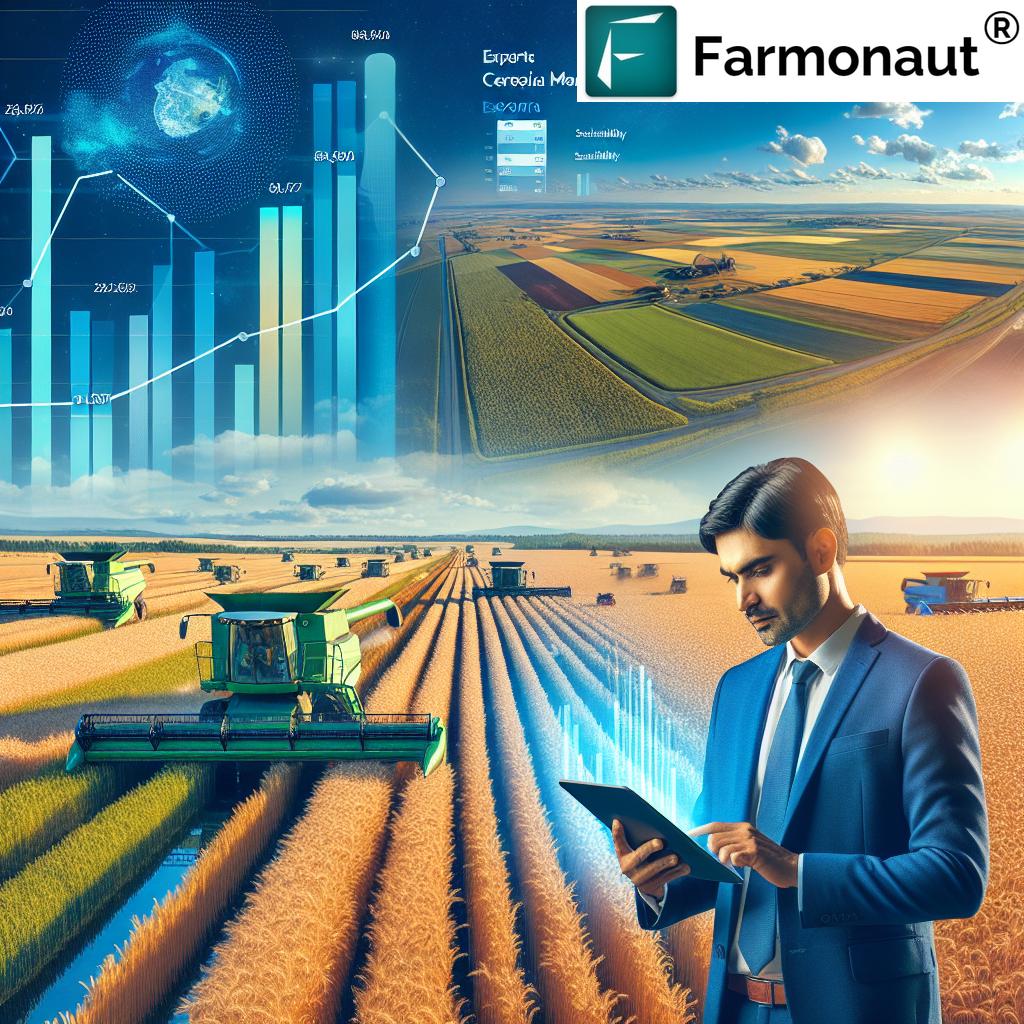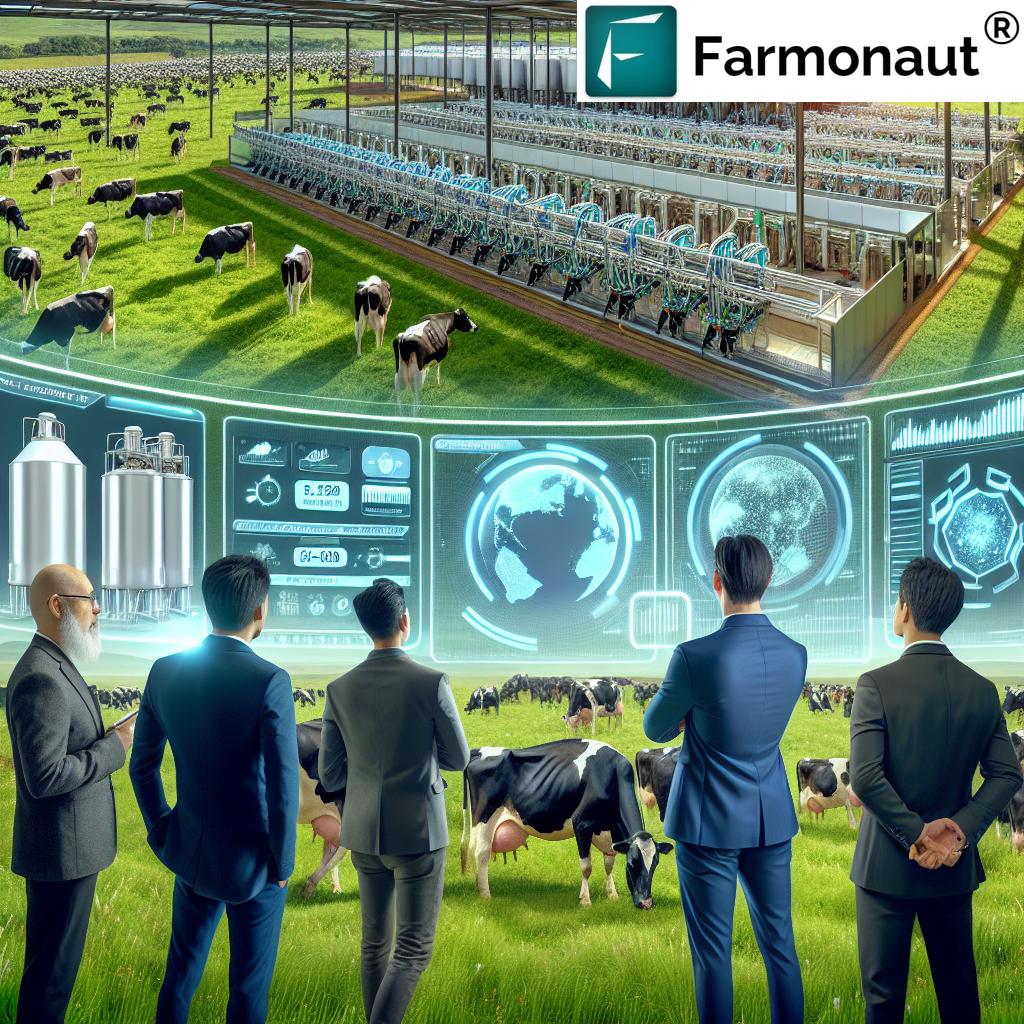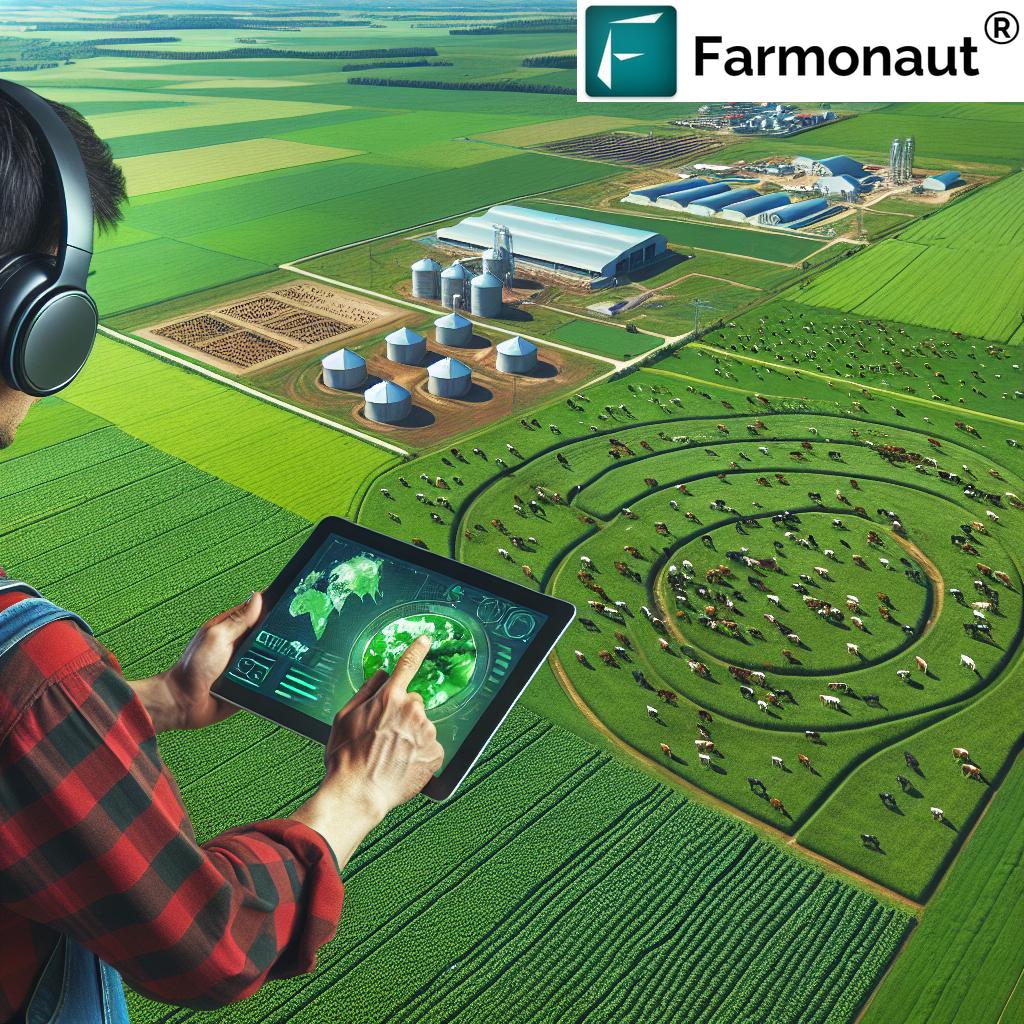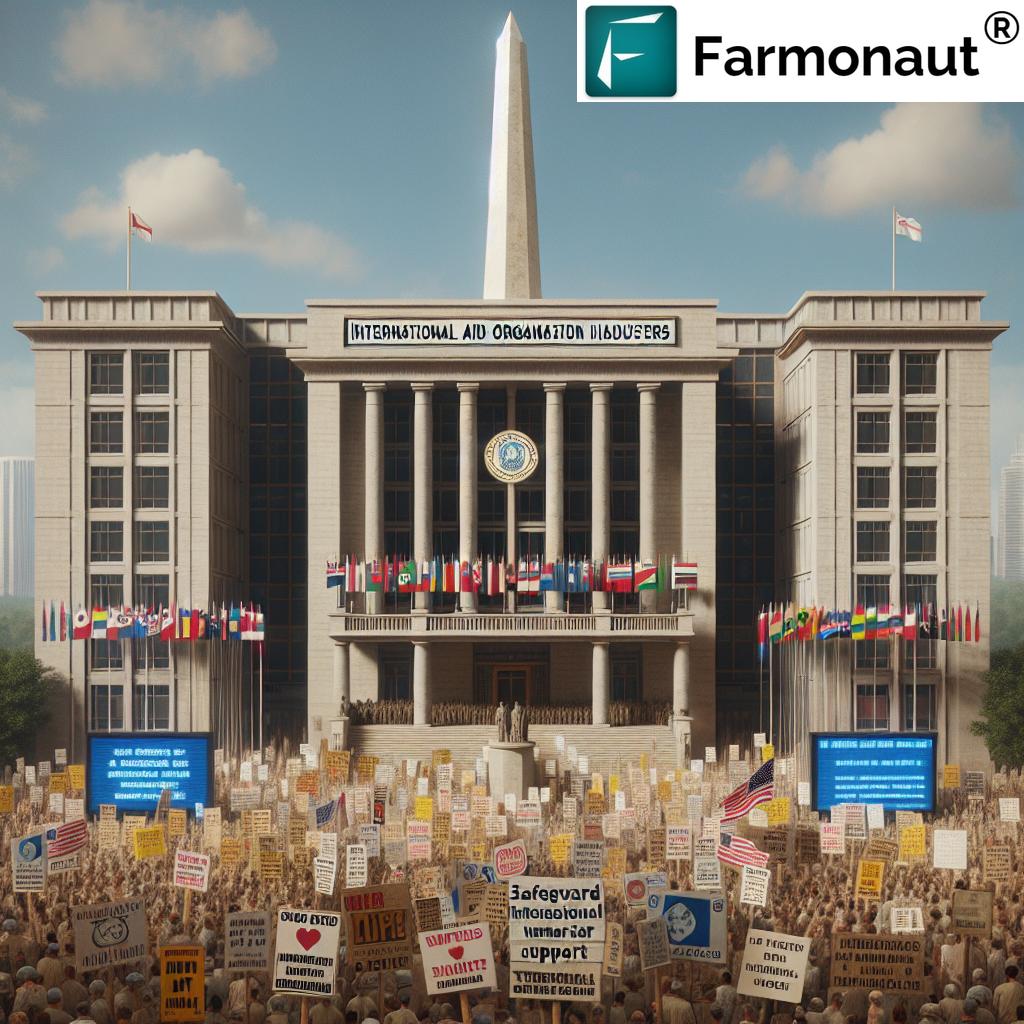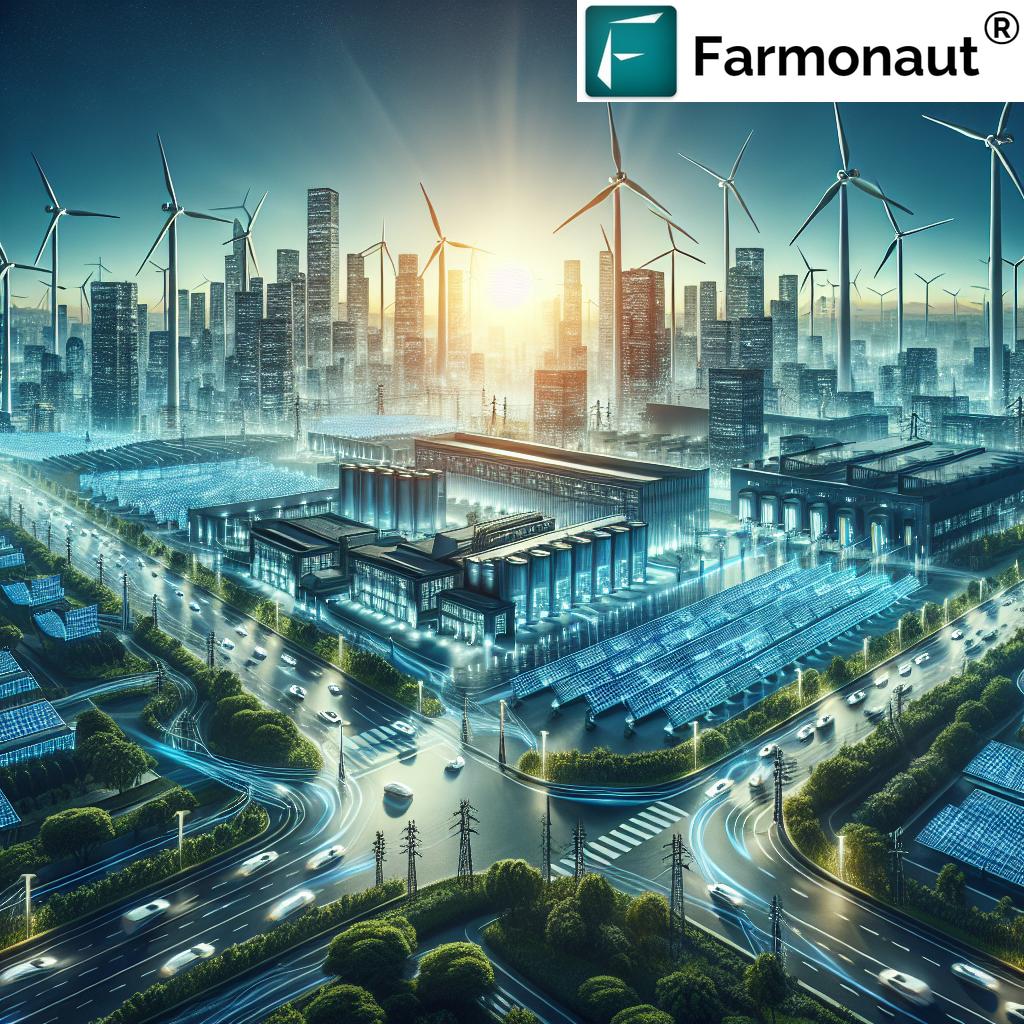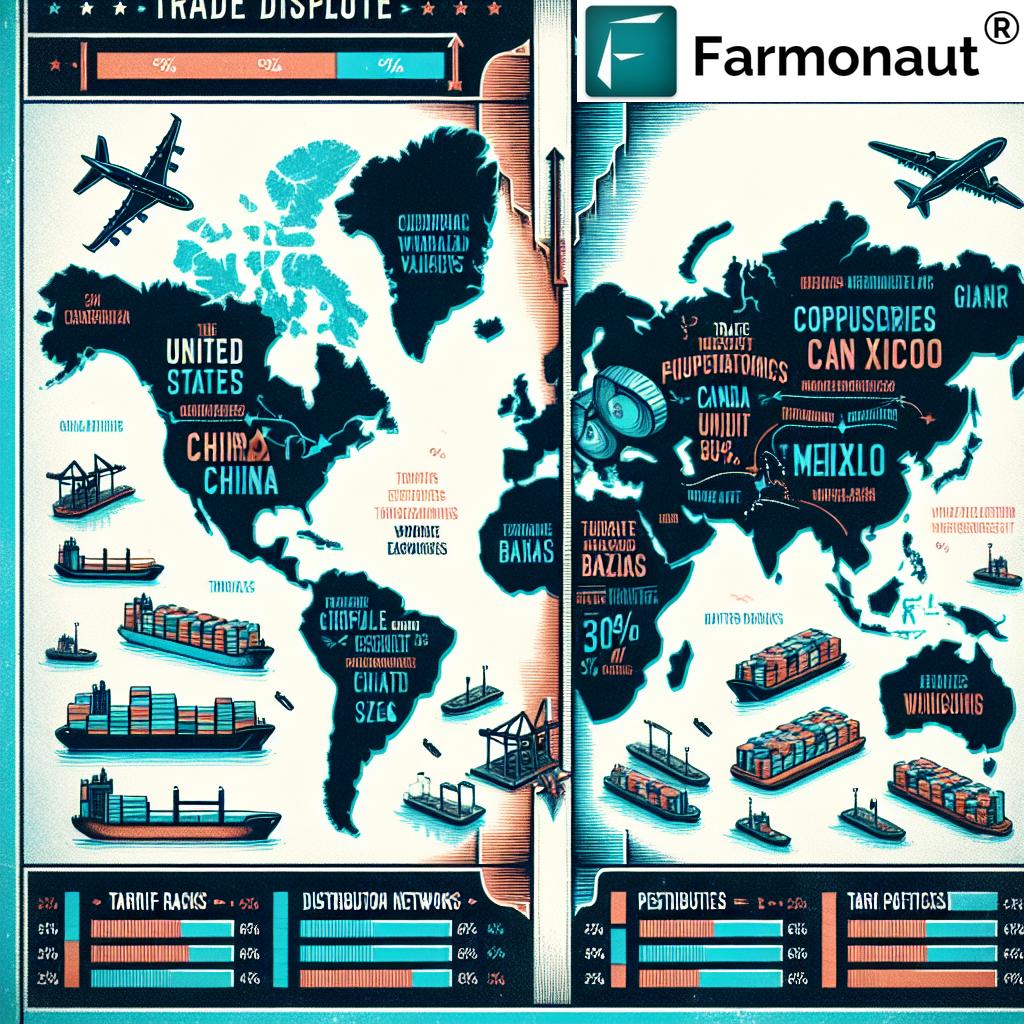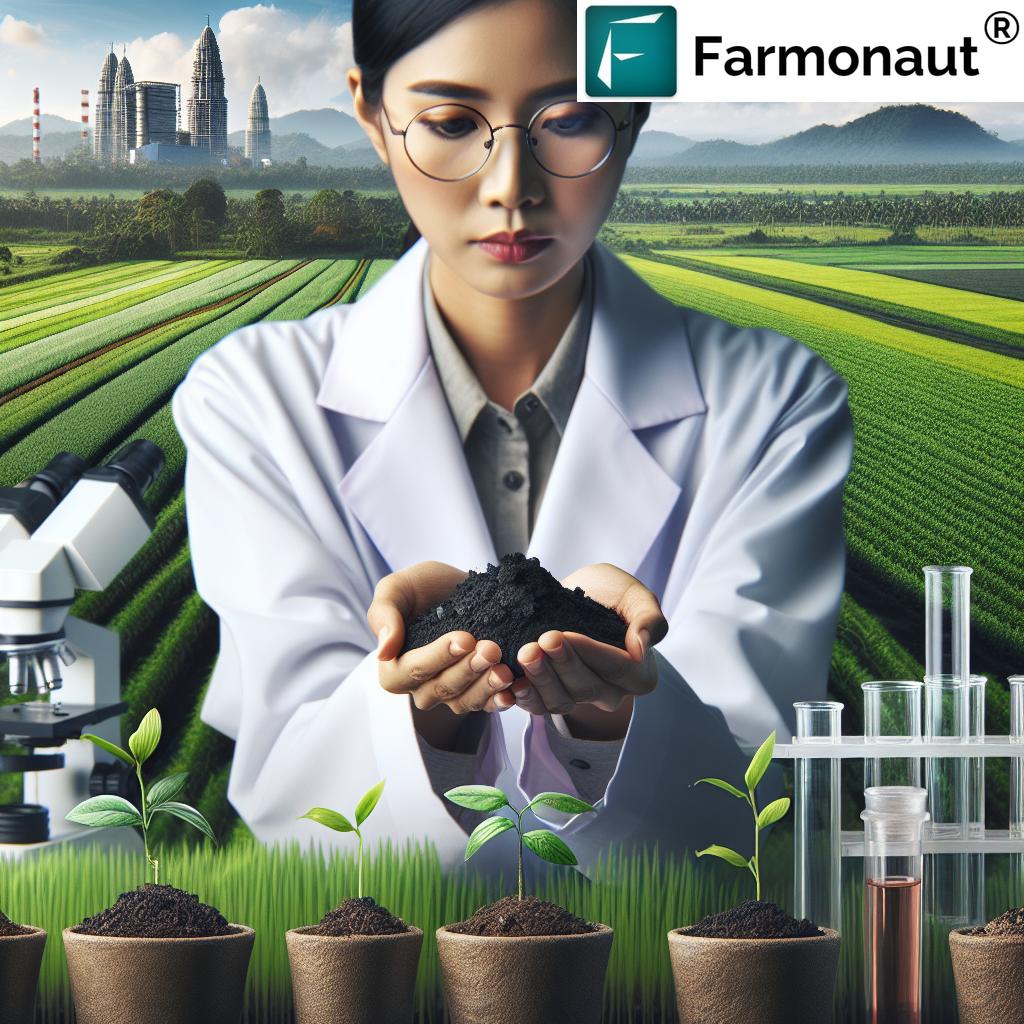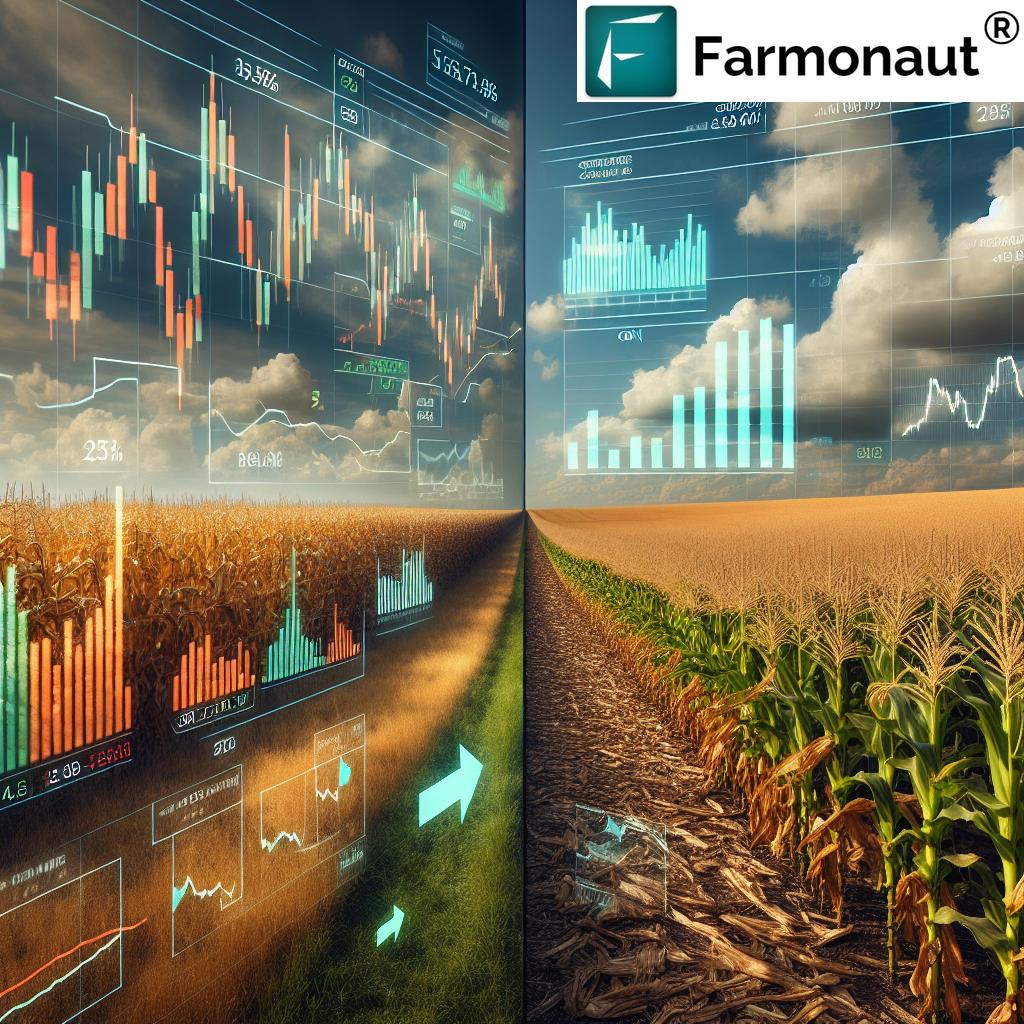Sustainable Real Estate Innovation: Strategic Asset Monetization Drives Future Growth in Engineered Soils Sector
“In Q4 2024, the company achieved its first quarter of positive Adjusted EBITDA, marking a significant financial milestone.”
In the ever-evolving landscape of real estate development and sustainable innovation, we are witnessing a transformative shift that promises to reshape the industry’s future. At the forefront of this change is Safe and Green Development Corporation (NASDAQ: SGD), a pioneering real estate development and innovation company that has recently unveiled its groundbreaking 2024 year-end highlights. These developments not only showcase the company’s strategic vision but also underscore the growing importance of sustainable practices and green investment strategies in the real estate sector.
A Paradigm Shift in Real Estate Development
The real estate industry is undergoing a significant transformation, with a growing emphasis on sustainability, innovation, and strategic asset monetization. SGD’s recent announcements reflect this shift, highlighting the company’s commitment to long-term, recurring revenue growth through strategic acquisitions and sustainable development practices.
At the heart of SGD’s strategy is the planned acquisition of Resource Group US Holdings LLC (RSG), a move that positions the company for substantial growth in the engineered soils and composting sector. This strategic evolution not only diversifies SGD’s portfolio but also aligns with the increasing demand for sustainable solutions in real estate and urban development.
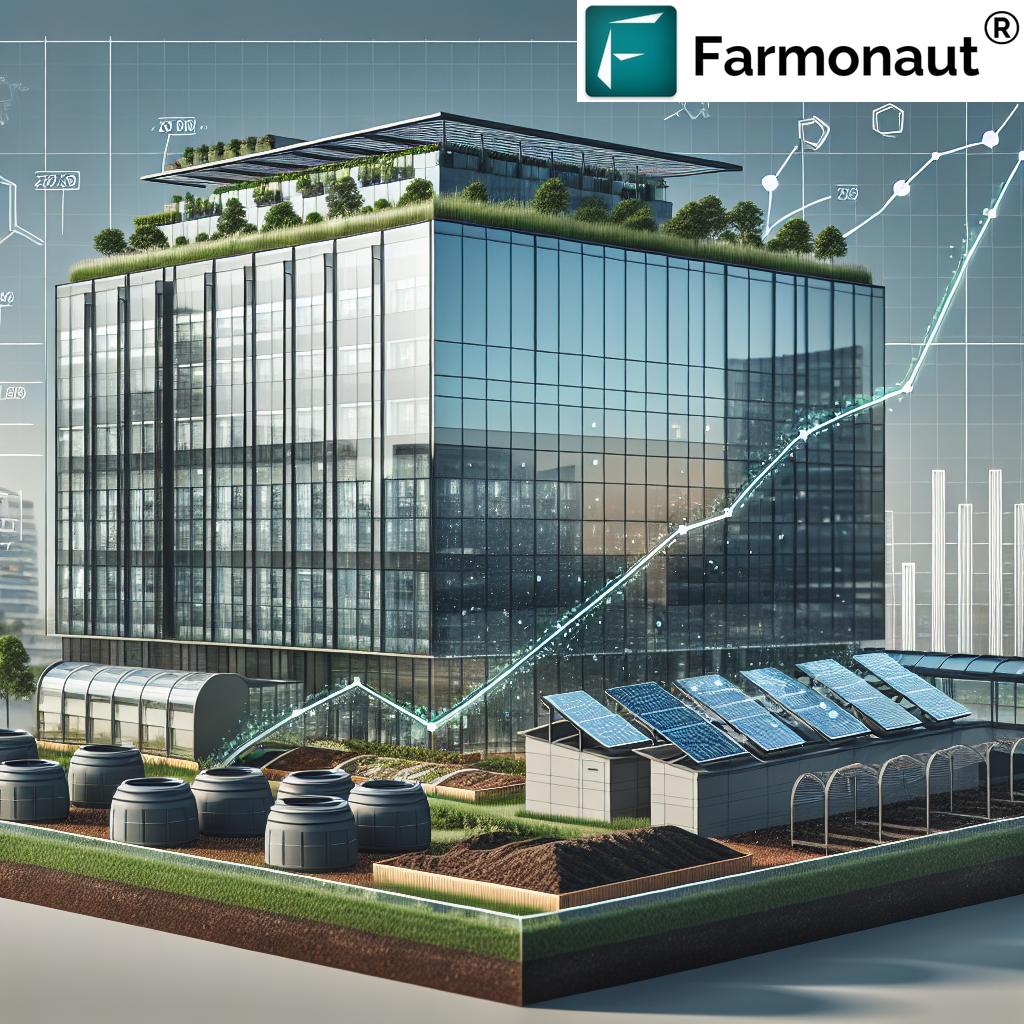
The Power of Engineered Soils and Composting
The acquisition of RSG marks a pivotal moment in SGD’s journey towards sustainable real estate development. RSG’s operations, which include RGUS (holder of an exclusive license to patented composting and engineered soils machinery) and ZEI (a vertically integrated logistics and trucking business), provide SGD with a robust platform for growth in the engineered soils sector.
Engineered soils play a crucial role in sustainable urban development, offering solutions for improved stormwater management, urban agriculture, and green infrastructure. By integrating these capabilities, SGD is positioning itself at the intersection of real estate development and environmental sustainability.
For those interested in sustainable agriculture practices, Farmonaut’s crop plantation and forest advisory services offer valuable insights into optimizing soil health and crop management using satellite-based technologies.
Financial Performance and Strategic Initiatives
SGD’s financial highlights for 2024 demonstrate the company’s commitment to sustainable growth and strategic asset monetization. The achievement of positive Adjusted EBITDA in Q4 2024 marks a significant milestone, reflecting improved financial performance and operational efficiency.
| Category | Q4 2023 (Estimated) | Q4 2024 | Year-over-Year Change |
|---|---|---|---|
| Adjusted EBITDA | Negative | $38,841 (Positive) | Significant Improvement |
| Revenue from Engineered Soils Sector | N/A | Projected Growth | New Revenue Stream |
| Sustainable Residential Projects Progress | Planning Stage | 5 Homes Completed | Substantial Progress |
| Institutional Investment Support | Limited | Up to $10 Million Secured | Increased Financial Backing |
This table illustrates the company’s remarkable progress across key financial and operational metrics, underscoring the effectiveness of its strategic initiatives in driving sustainable growth.
Strategic Asset Monetization: A Key Driver of Growth
One of the cornerstones of SGD’s strategy is the strategic monetization of non-core assets. The sale of the St. Mary’s property in Georgia for $1.4 million exemplifies this approach, enabling the company to reduce high-interest debt and reinvest in initiatives aligned with its evolving business focus.
This strategic asset monetization not only strengthens SGD’s financial position but also allows for more targeted investments in sustainable real estate development and green technologies. By optimizing its asset portfolio, SGD is better positioned to capitalize on emerging opportunities in the sustainable community development sector.
“The company’s strategic acquisition in engineered soils and composting positions it for long-term, recurring revenue growth in sustainable sectors.”
Sustainable Residential Projects: Building for the Future
While SGD’s focus is shifting towards scalable, cash-generating assets, the company continues to make significant progress in its sustainable residential projects. The Sugar Phase I development in Texas, with the completion of its first five homes, demonstrates SGD’s commitment to creating environmentally friendly living spaces.
These sustainable residential projects not only contribute to the company’s revenue streams but also serve as showcases for innovative, green building practices. By integrating advanced technologies and sustainable materials, SGD is setting new standards for eco-friendly urban development.
For those interested in sustainable land management practices, Farmonaut’s large-scale farm management solutions offer valuable tools for optimizing agricultural operations and promoting sustainable land use.
Institutional Investment: Fueling Future Growth
SGD’s ability to secure up to $10 million in potential investment from Arena Investors (Arena Global) underscores the growing institutional interest in sustainable real estate development. This financial backing not only provides SGD with the capital necessary to execute its strategic initiatives but also validates the company’s business model and growth potential.
Institutional investment in real estate, particularly in projects focused on sustainability and innovation, is a growing trend that reflects the shifting priorities of both investors and consumers. By aligning with these institutional partners, SGD is well-positioned to accelerate its growth and expand its impact in the sustainable development sector.
The Role of Technology in Sustainable Real Estate
As we delve deeper into SGD’s strategic developments, it’s clear that technology plays a crucial role in driving innovation and sustainability in the real estate sector. From advanced composting techniques to smart home technologies, the integration of cutting-edge solutions is reshaping the way we think about property development and urban planning.
In this context, it’s worth noting the contributions of companies like Farmonaut, which leverage satellite technology and AI to promote sustainable land management practices. While not directly related to SGD’s operations, Farmonaut’s carbon footprinting services offer valuable insights for businesses looking to monitor and reduce their environmental impact, aligning with the broader goals of sustainable development.
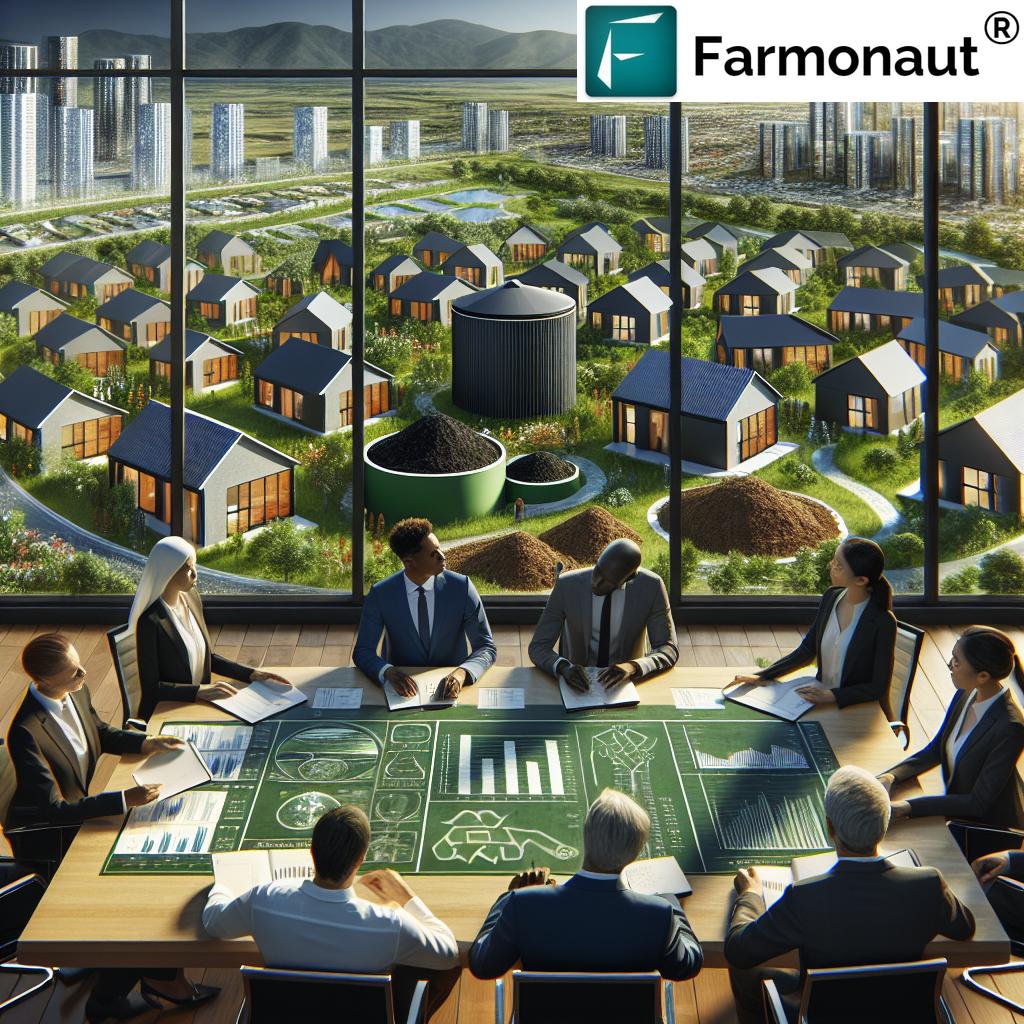
The Future of Sustainable Community Development
As we look to the future, the concept of sustainable community development is becoming increasingly important. SGD’s strategic focus on engineered soils and composting, combined with its ongoing residential projects, positions the company at the forefront of this movement.
Sustainable communities go beyond just eco-friendly buildings; they encompass entire ecosystems that promote environmental stewardship, social equity, and economic prosperity. By integrating advanced technologies, green spaces, and efficient resource management systems, these communities offer a blueprint for the cities of tomorrow.
Non-GAAP Financial Measures: Understanding Adjusted EBITDA
In analyzing SGD’s financial performance, it’s important to understand the role of non-GAAP financial measures, particularly Adjusted EBITDA. This metric provides investors with additional insights into the company’s operational efficiency and underlying profitability by excluding non-cash and non-recurring expenses.
For Q4 2024, SGD reported an Adjusted EBITDA of $38,841, marking its first positive quarter. This improvement reflects the company’s efforts in streamlining operations, reducing costs, and focusing on high-margin activities. While Adjusted EBITDA should not be considered in isolation, it serves as a valuable complement to GAAP financial measures in assessing the company’s overall financial health.
Green Investment Strategies: A Growing Trend
The strategic developments at SGD reflect a broader trend in the investment world towards green and sustainable initiatives. Investors are increasingly recognizing the long-term value and risk mitigation benefits of environmentally conscious projects.
Green investment strategies encompass a wide range of approaches, from renewable energy and sustainable real estate to eco-friendly technologies and conservation efforts. By aligning its business model with these principles, SGD is not only contributing to environmental sustainability but also positioning itself to capitalize on the growing demand for green investments.
For those interested in sustainable agricultural practices, Farmonaut’s crop loan and insurance services offer innovative solutions that leverage satellite technology to support farmers and promote sustainable farming practices.
The Impact of Engineered Soils on Urban Development
As we delve deeper into SGD’s strategic focus on engineered soils, it’s important to understand the profound impact this technology can have on urban development. Engineered soils offer numerous benefits, including improved stormwater management, enhanced plant growth, and increased resilience to climate change effects.
In dense urban environments, where space is at a premium and natural soil conditions are often poor, engineered soils can play a crucial role in creating sustainable green spaces, rooftop gardens, and urban agriculture projects. By incorporating these advanced soil technologies into its development projects, SGD is not only enhancing the environmental performance of its properties but also contributing to more livable, resilient urban ecosystems.
The Role of Innovation in Sustainable Real Estate
Innovation lies at the heart of SGD’s approach to sustainable real estate development. From advanced composting technologies to smart home systems, the company is leveraging cutting-edge solutions to create more efficient, environmentally friendly living spaces.
This focus on innovation extends beyond just technology implementation. It encompasses new approaches to urban planning, creative financing models for sustainable projects, and novel ways of engaging communities in the development process. By fostering a culture of innovation, SGD is not only differentiating itself in the market but also driving forward the entire field of sustainable real estate development.
The Importance of Scalability in Sustainable Business Models
One of the key aspects of SGD’s evolving strategy is the focus on scalable, cash-generating assets. This approach is crucial for long-term success in the sustainable development sector, where initial costs can be high and returns may take time to materialize.
By developing business models and technologies that can be easily replicated and scaled across different projects and locations, SGD is positioning itself for sustained growth. This scalability not only improves the company’s financial performance but also allows for a broader impact in promoting sustainable development practices across diverse communities.
Challenges and Opportunities in the Sustainable Real Estate Sector
While the potential for growth in sustainable real estate is significant, it’s important to acknowledge the challenges facing the industry. These include regulatory hurdles, the need for substantial upfront investments, and the ongoing task of educating consumers and investors about the long-term benefits of sustainable development.
However, these challenges also present opportunities for innovative companies like SGD. By developing creative solutions, forging strategic partnerships, and demonstrating the tangible benefits of sustainable practices, the company can position itself as a leader in overcoming these industry-wide obstacles.
The Future of SGD and Sustainable Real Estate
As we look to the future, SGD’s strategic developments paint a picture of a company poised for significant growth in the sustainable real estate sector. The focus on engineered soils, strategic asset monetization, and innovative residential projects positions SGD at the forefront of the industry’s evolution towards more sustainable, efficient, and community-oriented development practices.
The company’s ability to secure institutional investment support and achieve positive Adjusted EBITDA demonstrates the financial viability of its approach. As awareness of environmental issues continues to grow and regulations increasingly favor sustainable practices, companies like SGD that have already established themselves in this space are well-positioned to thrive.
Conclusion: A New Era of Sustainable Development
The strategic developments at Safe and Green Development Corporation represent more than just corporate success; they signal a broader shift in the real estate industry towards sustainability, innovation, and long-term value creation. By focusing on engineered soils, strategic asset monetization, and sustainable residential projects, SGD is not only positioning itself for future growth but also contributing to the development of more resilient, environmentally friendly communities.
As we move forward, the importance of sustainable real estate practices will only continue to grow. Companies that can successfully integrate environmental stewardship with financial performance, as SGD is striving to do, will likely lead the way in shaping the future of urban development and community planning.
The journey towards truly sustainable real estate development is ongoing, and there will undoubtedly be challenges along the way. However, the strategic vision and innovative approach demonstrated by SGD offer a compelling roadmap for the industry’s future. As investors, developers, and communities increasingly recognize the value of sustainable practices, we can look forward to a new era of real estate development that prioritizes both environmental responsibility and economic prosperity.
FAQ Section
- What is the significance of SGD’s acquisition of Resource Group US Holdings LLC?
This acquisition positions SGD for long-term growth in the engineered soils and composting sector, diversifying its revenue streams and aligning with sustainable development trends. - How does strategic asset monetization contribute to SGD’s growth?
By selling non-core assets like the St. Mary’s property, SGD can reduce debt and reinvest in initiatives aligned with its evolving business focus, strengthening its financial position. - What role does Adjusted EBITDA play in assessing SGD’s financial performance?
Adjusted EBITDA provides insights into operational efficiency by excluding non-cash and non-recurring expenses, offering a complementary view to GAAP financial measures. - How is SGD contributing to sustainable community development?
Through its focus on engineered soils, sustainable residential projects, and innovative technologies, SGD is helping to create more environmentally friendly and resilient urban communities. - What challenges does the sustainable real estate sector face?
Key challenges include regulatory hurdles, the need for substantial upfront investments, and educating stakeholders about the long-term benefits of sustainable development practices.
Earn With Farmonaut: Affiliate Program
Earn 20% recurring commission with Farmonaut’s affiliate program by sharing your promo code and helping farmers save 10%. Onboard 10 Elite farmers monthly to earn a minimum of $148,000 annually—start now and grow your income!
Farmonaut Subscriptions
For developers interested in integrating satellite and weather data into their applications, check out Farmonaut’s API and API Developer Docs.





